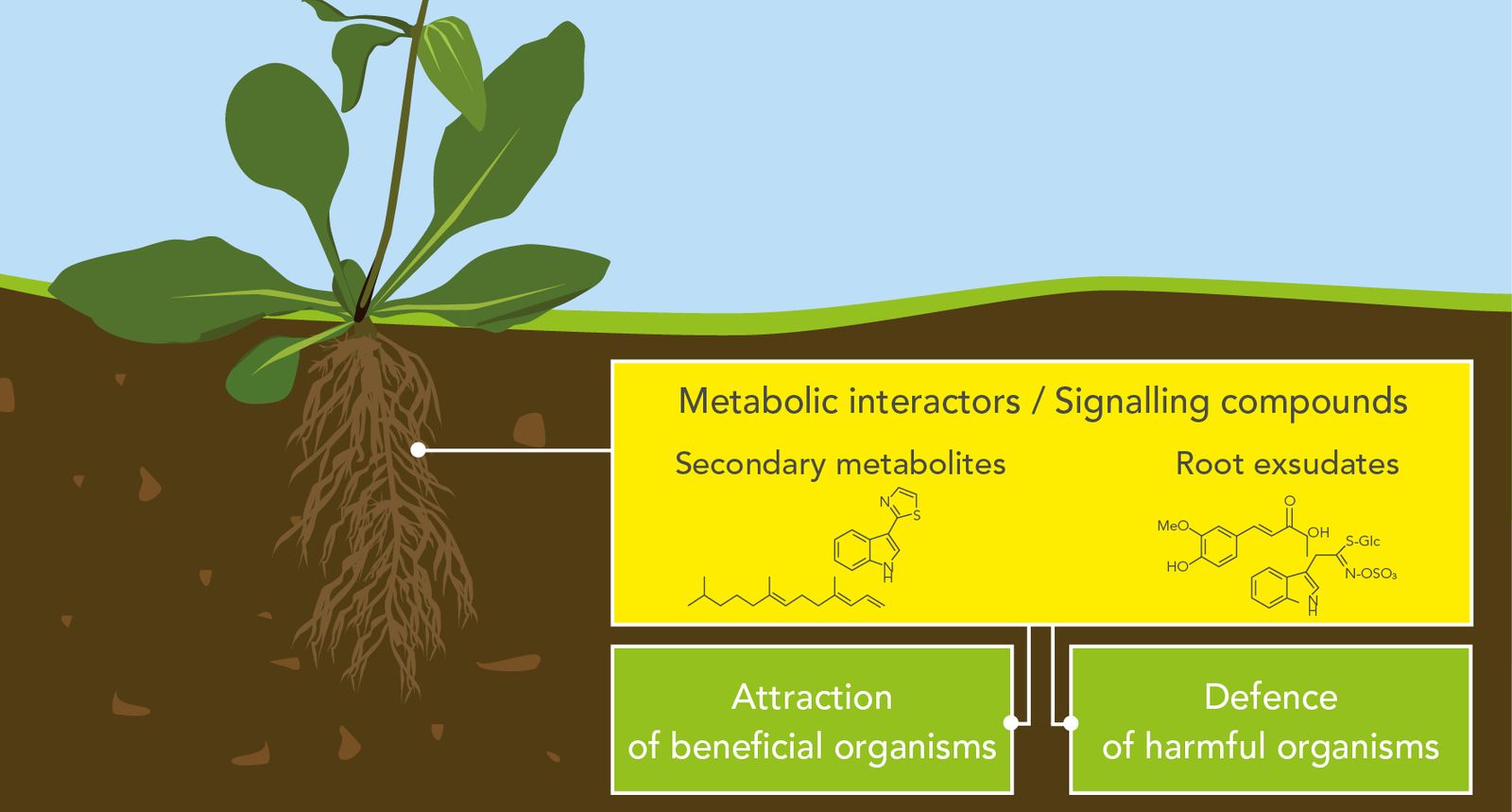Research Area D: Metabolic Interactions
Plant metabolism: from biotic challenges to synthetic biology
Environmental stressors shape the chemical diversity of plant secondary metabolites that have both beneficial and/or detrimental effects on plants. Our research area has four major goals. First, we will explore the interdependency between plants and their associated endophytes at the metabolic level. Therefore, we plan to analyse the diversity of (secondary) metabolites, which has evolved in response to this association, as well as the bioactivity of root exudates.
In a second approach, we want to identify and characterise key components of regulatory modules controlling the biosynthesis of these metabolites.
Thirdly our group will develop and test predictive models of biosynthetic networks involved in the interaction with plant endophytes by transferring regulatory modules and novel traits into model plants. Transfer of such modules should enable redirection of metabolic fluxes for the production of beneficial metabolites. These plants are referred to as “synthetic plants” because they contain a novel network of genes not existing in nature.
Our last step and the long-term aim of research area D is the transfer of biosynthetic plant pathways into microbial hosts and/or endophytes for the production of phytochemicals and to investigate molecular interactions and underlying mechanisms. The identification and the modular assembly of compatible genetic elements in a “synthetic microorganism” will enable the synthesis of novel compounds. These combined approaches will have a significant impact on developing next generation agricultural products and may also lead to biotechnological and pharmaceutical innovations.
Coordinator
Prof. Dr. Markus Pauly

Institute for Plant Cell Biology and Biotechnology
Heinrich Heine University Düsseldorf
